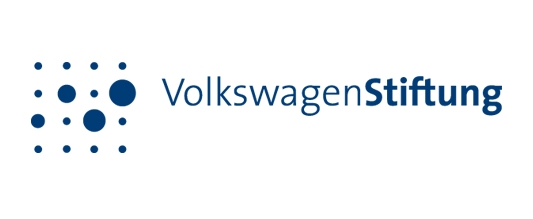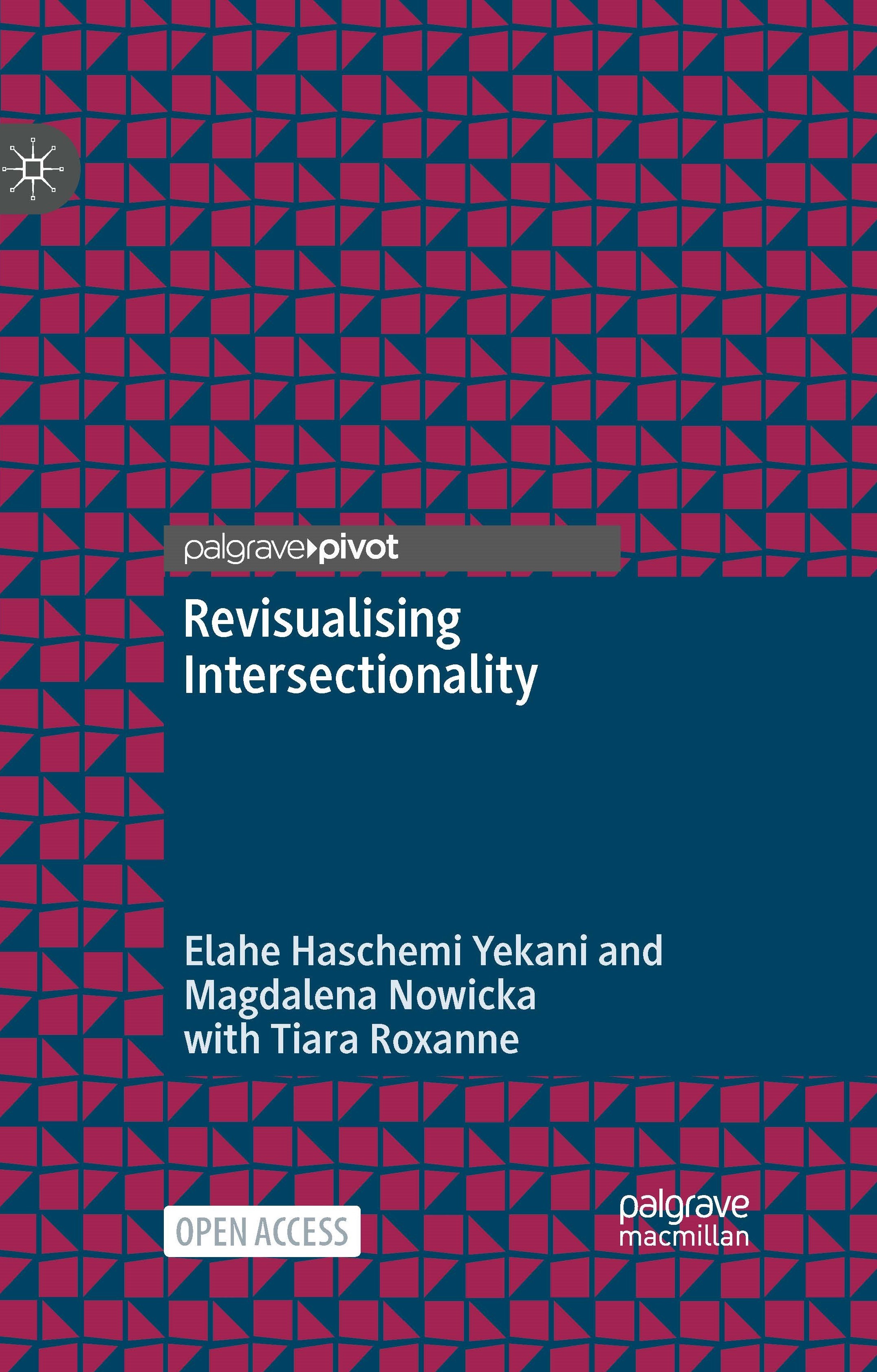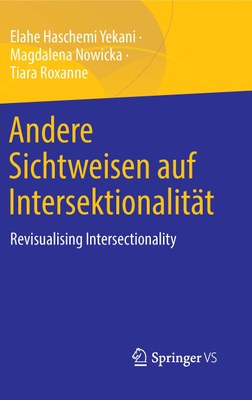Revis(ualis)ing Intersectionality

Joint research project of Prof. Dr. Elahe Haschemi Yekani (Humboldt-Universität zu Berlin) and Prof. Dr. Magdalena Nowicka (German Center for Integration and Migration Research (DeZIM) with Dr. Tiara Roxanne
Funded by the Volkswagen Foundation in the funding initiative "Original – isn’t it?" New Options for the Humanities and Cultural Sciences, Funding Line 2: Constellations
January 2019 to June 2022
Taking the visual sphere as its starting point, the project Revis(ualis)ing Intersectionality interrogates how a focus on visuality might help to come up with methodologies that move beyond the binary to revise some of the premises of intersectionality as a research paradigm that employs categories to describe bodies and processes of stratification. We propose to do the opposite: We want to probe a methodology which takes visual polysemy as its structural premise. Rather than follow the often-voiced logic that “we need categories to make sense of the world”, we want to explore whether the assumed categories hinder our perception of human differences and, ultimately,our understanding of social inequalities. In a first phase that consists of exploratory workshops, we willinvite artists, philosophers and cognitive scientists to focus on the visual public sphere, including signage, to develop "ways of seeing" different "modes of being" rather than limit our analysis to supposedly fixed meanings linked to physical characteristics. Here artistic production is regarded as a central knowledge producing catalyst.
2022: Publication Revisualising Intersectionality
 Revisualising Intersectionality offers transdisciplinary interrogations of the supposed visual evidentiality of categories of human similarity and difference. This open-access book incorporates insights from social and cognitive science as well as psychology and philosophy to explain how we visually perceive physical differences and how cognition is fallible, processual, and dependent on who is looking in a specific context. Revisualising Intersectionality also puts into conversation visual culture studies and artistic research with approaches such as gender, queer, and trans studies as well as postcolonial and decolonial theory to complicate simplified notions of identity politics and cultural representation. The book proposes a revision of intersectionality research to challenge the predominance of categories of visible difference such as race and gender as analytical lenses.
Revisualising Intersectionality offers transdisciplinary interrogations of the supposed visual evidentiality of categories of human similarity and difference. This open-access book incorporates insights from social and cognitive science as well as psychology and philosophy to explain how we visually perceive physical differences and how cognition is fallible, processual, and dependent on who is looking in a specific context. Revisualising Intersectionality also puts into conversation visual culture studies and artistic research with approaches such as gender, queer, and trans studies as well as postcolonial and decolonial theory to complicate simplified notions of identity politics and cultural representation. The book proposes a revision of intersectionality research to challenge the predominance of categories of visible difference such as race and gender as analytical lenses.
OPEN ACCESS DOI: 10.1007/978-3-030-93209-1

German Translation: Andere Sichtweisen auf Intersektionalität: Revisualising Intersectionality. Wiesbaden: Springer VS, 2023. DOI: 10.1007/978-3-658-38757-0
2019: Revis(ualis)ing Intersectionality: Conversations
The concept:
Rather than categorizing or naming, we are interested in creating a space of conversation as a research methodology that ruptures binaries, one which employs the concept of intersectionality via the visual sphere. By filtering intersectionality through visuality, we arrive at questions of the un/seen regarding subjectivity, ontology, gender, and more generally, situatedness. In a series of four curated conversations, each dedicated to their own concept as follows: trans*, sameness, perception, and intimacy, we will explore the multiple forms of intersectionality these approaches yield.
Pt. I, trans*
Film screening of Doireann O’Malley’s Prototypes + text + conversation
26 September 2019, 18h, DeZIM Institut
Registration required: More information here.
Pt. II, sameness
Film Screening of Stephanie Comilang’s Lumapit Sa Akin, Paraiso (Come to Me,
Paradise) + text + conversation
23 October 2019, 18h, DeZIM Institut
Registration required: More information here.
Pt. III, perception
A talk with Ashkan Sepahvand, with live drawing from Nine Yamamoto
27 November 2019, 18h, DeZIM Institut
Registration required: More information here.
Pt. 4, intimacy
A talk with Shaka McGlotten with a performance by Zander Porter and James Batchelor
18 December 2019, 18h, Aquarium (next to Südblock)
More information here.
